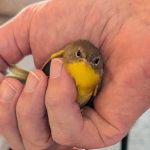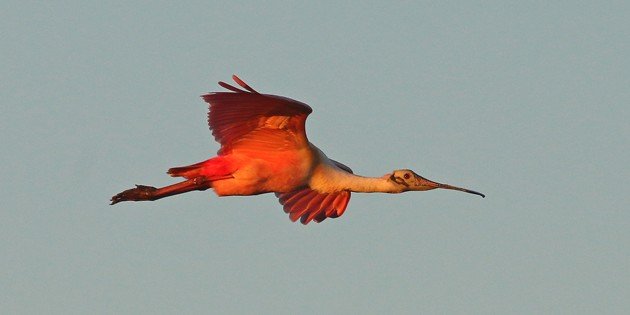It appears that our friends at the College of William and Mary are on a roll. Hot off the epic expedition of Winnie the Whimbrel comes a fascinating study that helps promote biodiversity in the only context most people can understand: human self interest. In essence, a healthy, diverse bird population is also good for human health!
The reason biodiversity is such a boon can be explained by a phenomenon called the dilution effect:
The dilution effect is an outcome of a potentially broadly applicable set of mathematical models that could help explain human risks of contracting vector-borne zoonoses, i.e., infectious diseases that are spread among host animals by a vector and threaten to spill over into the human population. Examples of zoonoses include avian influenza, anthrax, bubonic plague, Lyme disease, and West Nile virus, to name but a few. The fundamental principle underlying the dilution effect is that increased host diversity can dilute disease incidence through multiple mechanisms.
Biologist John Swaddle, an associate professor of biology and director of the environmental science and policy program at William and Mary, and an undergrad Stavros Calos found that areas which have a more diverse bird population show much lower incidences of West Nile virus infection in the human population. While the dilution effect was first reported in the context of ticks spreading Lyme disease from small mammals to humans, the Swaddle and Calos study is the first to demonstrate the dilution effect in a disease that has bird hosts. This study looks at West Nile virus but could pertain to other zoonoses of concern, such as avian (poultry) flu and bubonic plague as well.
According to Swaddle, very small changes in land management could attract more bird species, with the increase in biodiversity paying off in the form of lower human infection rates during outbreaks of West Nile or other zoonoses in the bird population.
“Biodiversity is giving us a public health service that people have rarely considered and the value of this service should be considered when developing land and managing bird populations in the future.”
I’ll drink to that! You can explore the full findings on the online peer-reviewed journal PLoS One.












Good work from my alma mater.
BTW, when I was a student there, the chair of the biology department was Dr. Byrd.
Wren,
Dr. Mitchell Byrd, the former chairman you mentioned, is still active. I saw him a week or so ago. Here is a story and photo: http://www.wm.edu/news/index.php?id=8989
He deserves a lot of credit for the return of many bird species in the East–especially raptors.